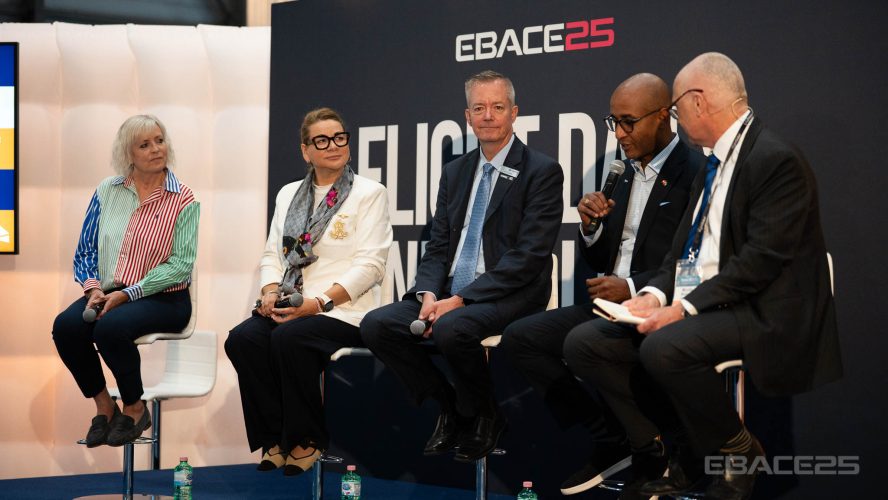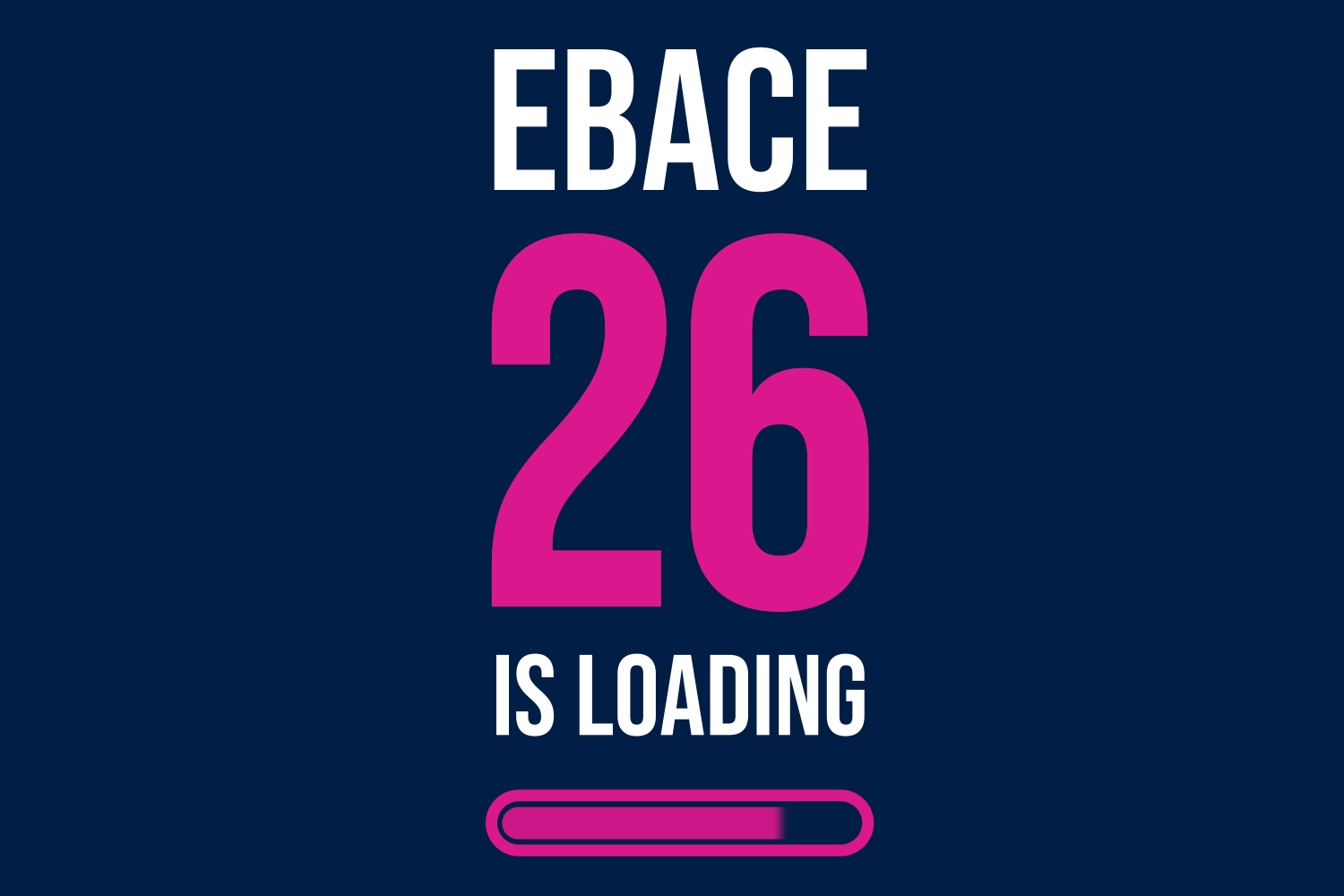The final Flight Daily News Live session at EBACE25 brought powerful perspectives to the stage, as a panel of global leaders tackled one of the most pressing questions facing the Business Aviation sector today: Is DEI dead, or is it more important than ever to ensure no one is left behind in our industry?
Moderated by Murdo Morrison, Head of Strategic Content at FlightGlobal, the discussion featured:
- Julie Black, Head of UK Executive Charter at Hunt & Palmer and Deputy Chair of The Air Charter Association (ACA)
- Doug Carr, SVP at NBAA and Chair of the National Gay Pilots Association
- Dawit Lemma, Founder & CEO of Krimson Aviation and Chair of the African Business Aviation Association (AfBAA)
- Rucsandra Mihai, Vice President at Women in Corporate Aviation (WCA) and Founder of Train Aviation
Each speaker brought their unique experiences and candid reflections to the table, offering both a reality check and a call to action.
“Diversity, equity and inclusion are not just moral imperatives – they’re good for business,” said Dawit Lemma. “Diverse leadership teams consistently outperform. Fresh perspectives drive innovation. But Business Aviation has long been perceived as an ‘old boys’ club’, and it still feels that way in too many rooms.”
Doug Carr agreed, stating that the industry has a long way to go compared to others. “Being an effective leader means representing your members on issues and as people. DEI helps associations and organisations connect more meaningfully with their stakeholders. It’s a critical enabler for success.”
Rucsandra Mihai added that DEI isn’t only evolving, it’s maturing. “At Women in Corporate Aviation, we bring together people from all over the world, with different cultures, races and perspectives. I’m proud to be the organisation’s first non-American, non-native English-speaking VP. That in itself is a sign of progress. Diverse teams are more tolerant, safer, stronger and adaptable.”
From representation to opportunity
Representation remains a challenge, especially in leadership. Julie Black reflected on her own 10-year journey with The ACA: “Aviation is still male-dominated, whether it’s the hangar floor, flight deck or boardroom. But our customers are incredibly diverse. Our industry must better reflect the world we live in.”
She highlighted encouraging progress: The ACA’s internship programme recently received 60 applicants, with a fifth being female – a sign that change is beginning to take hold.
Rucsandra noted a welcome shift in career dynamics: “I’m seeing more women step into roles traditionally dominated by men: engineers, mechanics, pilots. Women bring resilience, empathy and tolerance to the workplace, which are qualities that every organisation can benefit from.”
Making Business Aviation more accessible
All panellists agreed that the onus is on the industry to reach out, not wait to be found. “We can’t expect diverse talent to discover us,” said Lemma. “We have to go into schools, into communities, and show them that Business Aviation is for them.”
He shared a powerful example: at an AfBAA event, 25 young girls from underprivileged backgrounds visited a conference, sat inside a business jet for the first time, and spoke with women leaders. Many are now pursuing STEM careers. “That’s the power of visibility,” he said.
Doug Carr echoed this with NBAA’s outreach model: “At every event, we invite students to get hands-on with aircraft and meet professionals who look like them. Those moments spark belief and belief leads to ambition.”
Rucsandra highlighted how WCA plays a key role in opening doors: “We’ve awarded more than $1.4 million in scholarships over the past decade. Our programmes help newcomers train, network and access the support they need to succeed. Events like EBACE are crucial for making connections and seeing the human side of our industry.”
Culture first, policy second
The session closed with reflections on what still needs to change and how to get there. “DEI needs to be more than policy,” said Lemma. “It has to be embedded in company culture. Policies without real cultural change won’t move the dial.”
Julie Black added a note of optimism: “We’ve seen real progress in our lifetimes. But we’re living in unsettled times, and that fuels division. We must keep pushing for tolerance, empathy and equality.”
Doug Carr concluded, “The ultimate goal is to make DEI initiatives obsolete. Not because they failed, but because we’ve succeeded in embedding those values across the industry.”
Rucsandra summed it up simply: “Kindness, empathy and an open mindset are where it begins. If we create space for others and change how we see difference, we’ll keep building an industry that truly welcomes everyone.”
The message from EBACE25 is clear: diversity, equity and inclusion are not side conversations, they are central to the future of Business Aviation. Progress requires more than good intentions; it demands outreach, visibility, and a shared commitment to change.









